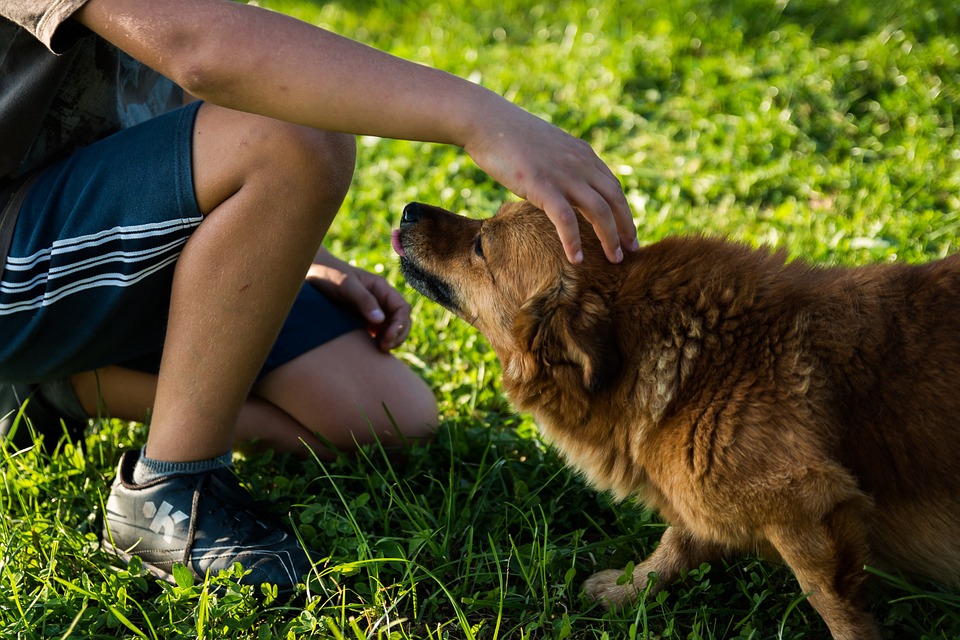13 Jun |
Posted by Stephen Trevathan |
no comments |
adopting a dog, animal rescue, pet owner tips, pet training tips

Are you thinking about adopting a shelter dog? These animals make for amazing pets, but there are a few things that you should know about socializing your new dog.
While most rescue dogs don’t have any issues settling into their new home, sometimes problems do arise. We want you to be prepared so that you know exactly what to do as a new pet owner.
Shelter dogs can suffer from some social anxiety around other animals and this can cause excess stress for new owners. If you want to learn how to socialize your new rescue dog or puppy, here are five tips you need to know!
Puppies are different from adult dogs in many ways and this affects how they interact with other canines. While you shouldn’t worry about letting your adopted puppy play with other puppies, remember that this is a sensitive period for them. Puppies are very receptive when interacting with new people and other animals (just like a baby or young child).
Each day, your puppy will be exposed to new things while simultaneously receiving physical and verbal encouragement from you.
If you’ve adopted an older dog (there are many in need), you’ll want to be more mindful of the physical and verbal reinforcements you provide. Here’s an article that you should check out if you’re trying to learn how best to train your rescue dog.
Your dog could be easily overwhelmed if you try to introduce them to every other pooch at the dog park. The goal here is to make your dog more comfortable with meeting other animals and it’s also a good opportunity to practice proper behavior in a social setting.
Allow your dog to slowly attend new friends one at a time. This way, they’ll be able to interact with other dogs off leash, which is ideal, and on their own terms, instead of getting overwhelmed by too much unfamiliar stimuli.
Here’s a great tip for new dog owners: Try taking your dog on a walk with a friend who has a well-behaved dog of their own.
This is a great tactic for several reasons. It’s social for you and your pet. Plus, the exercise should make the dog more calm and submissive if you meet other dogs on your walk.
When socializing a shelter dog positive encouragement is key. Providing the right incentive can help them associate those desired behaviors with positive reinforcement.

Make sure to be prepared when you’re heading out with your dog. This means a kind, soft demeanor as well as a pocketful of treats. This could also come in handy when you’re trying to get their attention later.
Social interactions between dogs can resemble social interactions between humans. What do we mean by this? They can be challenging. Not everyone is going to get along, and sometimes there is tension.
If your dog doesn’t seem to be getting along with another animal, this isn’t something you should force. You have to allow them to come to it at their own pace, which might not happen.
Your dog might just be the kind of dog that doesn’t play well with others, and that’s all right. Be patient, and let those relationships blossom at their own pace.
This may be the most important piece of advice. As we mentioned before, you’re rescue dog might not get along well with everyone. This isn’t unusual and it’s totally okay.
If you choose to adopt a dog, you need to understand that you are taking full responsibility for a living thing. If that dog ends up having a troublesome personality, you can’t just give up on them. Have you ever seen (or read) Marley and Me? We highly recommend it, especially if you have a “troublesome” dog.
A rescue dog needs and deserves all the love you can give it!
With the proper care and training, we can guarantee that your shelter dog will end up being the light of your life. Whether or not they’re naturally social animals, they can be your best friend and greatest companion if you allow them to be. Enjoy the time that you have with your animal and remember the socialization tips we’ve provided in this post, and you will have a very happy family indeed.